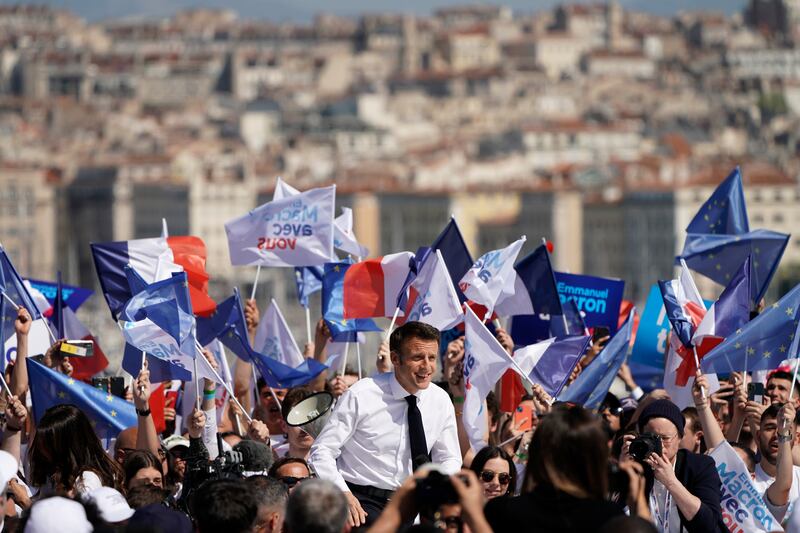The reelection of President Emmanuel Macron of France is an exceptionally important event. This result overall is positive for the stability of Europe, Atlantic area relations and international relations generally.
Above all, the outcome confirms the institutional stability and reliability of France, which is vital right now amid the current challenges in Europe, especially the war in Ukraine.
Macron received just over 58% of the vote, against just under 42% for opponent Marine Le Pen. This margin, while decisive, is narrower than in 2017 when these same candidates competed for the presidency.
Candidate Le Pen promises a continued struggle against the established leaders and policies of her nation. She was polite in her concession speech, but she reiterated her commitment to the populist goals of her right-wing National Rally party.
Her positions include hostility to the European Union and regional cooperation generally, reinforced by her ties to President Vladimir Putin of Russia. After the 2016 presidential election in the United States, she was one of the first foreign leaders publicly to praise the victory of Donald Trump.
Macron’s win reconfirms the stability of France’s domestic political structures and institutions of government. This is no small matter due to France’s history of instability.
In 1940, after the decisive military defeat of the well-armed but woefully weak army of France by the fast-moving blitzkrieg of Nazi Germany and four years of humiliating occupation, France suffered through years of weak, ineffective governments following the Allied liberation of France in 1944.
Gen. Charles de Gaulle, exceptional leader of the Free French during the war, returned as leader of France in 1958. He succeeded in stabilizing the nation’s politics and reestablishing effective national authority and legitimacy.
In the 21st century, France has formed a strong alliance with the U.S. Immediately after the terrorist attacks of 9/11, French aircraft joined those of other NATO allies in patrolling the skies over North America. The struggle against al-Qaida and the Taliban represents a comprehensive, collective enterprise, authorized and supported by the United Nations as well as the NATO alliance.
Earlier, long-term socialist French President Francois Mitterrand was pragmatic in dealing with the United States. “An American Life,” President Ronald Reagan’s autobiography, portrays Mitterrand and his wife in warm terms, with emphasis on interpersonal rapport. They overcame specific disagreements on trade and missile deployment.
By contrast, de Gaulle was almost constantly at odds with the Kennedy administration on strategy, including nuclear weapons, the future of European integration and the structure of NATO.
De Gaulle was also in power during President Dwight Eisenhower’s second term, but similar clashes were avoided. Eisenhower developed good working rapport with the difficult, sometimes-insufferable French leader during the Second World War.
While planning the Normandy invasion, American and British air commanders argued against heavy bombing strategies that would kill many civilians. Then-Gen. Eisenhower was able to turn to de Gaulle for vital support. Both deemed such bombing essential for success of the inherently risky sea-based invasion.
In foreign policy, as in domestic politics, our leaders are crucial.
Arthur I. Cyr is a Clausen Distinguished Professor at Carthage College and author of “After the Cold War — American Foreign Policy, Europe and Asia.”


